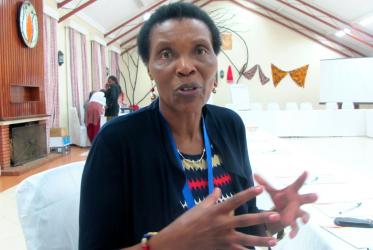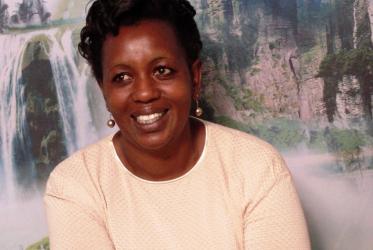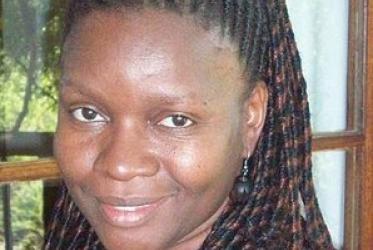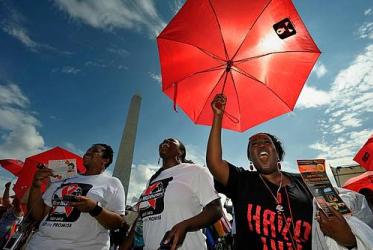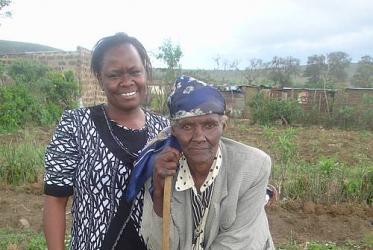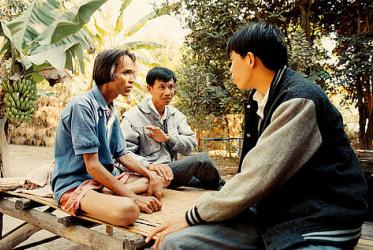Displaying 101 - 120 of 120
Inspiring African churches to uphold women's dignity
13 June 2013
Living with God in the context of HIV and AIDS
27 February 2013
Transforming lives affected by HIV and AIDS
13 February 2013
Ecumenical response to HIV and sexual violence in Angola
25 September 2012
Preventing violence and HIV pandemic in Nigeria
19 April 2012
EHAIA, an African initiative going beyond Africa
01 March 2012
Faith communities promote “safe spaces” to discuss health issues
19 January 2012
Fighting ignorance, fear and stigma through Bible study
09 December 2011
Accelerating the church's response to HIV
11 October 2011
WCC's HIV work reaches quarter-century mark
30 June 2011
“They have no wine”
30 November 2010
